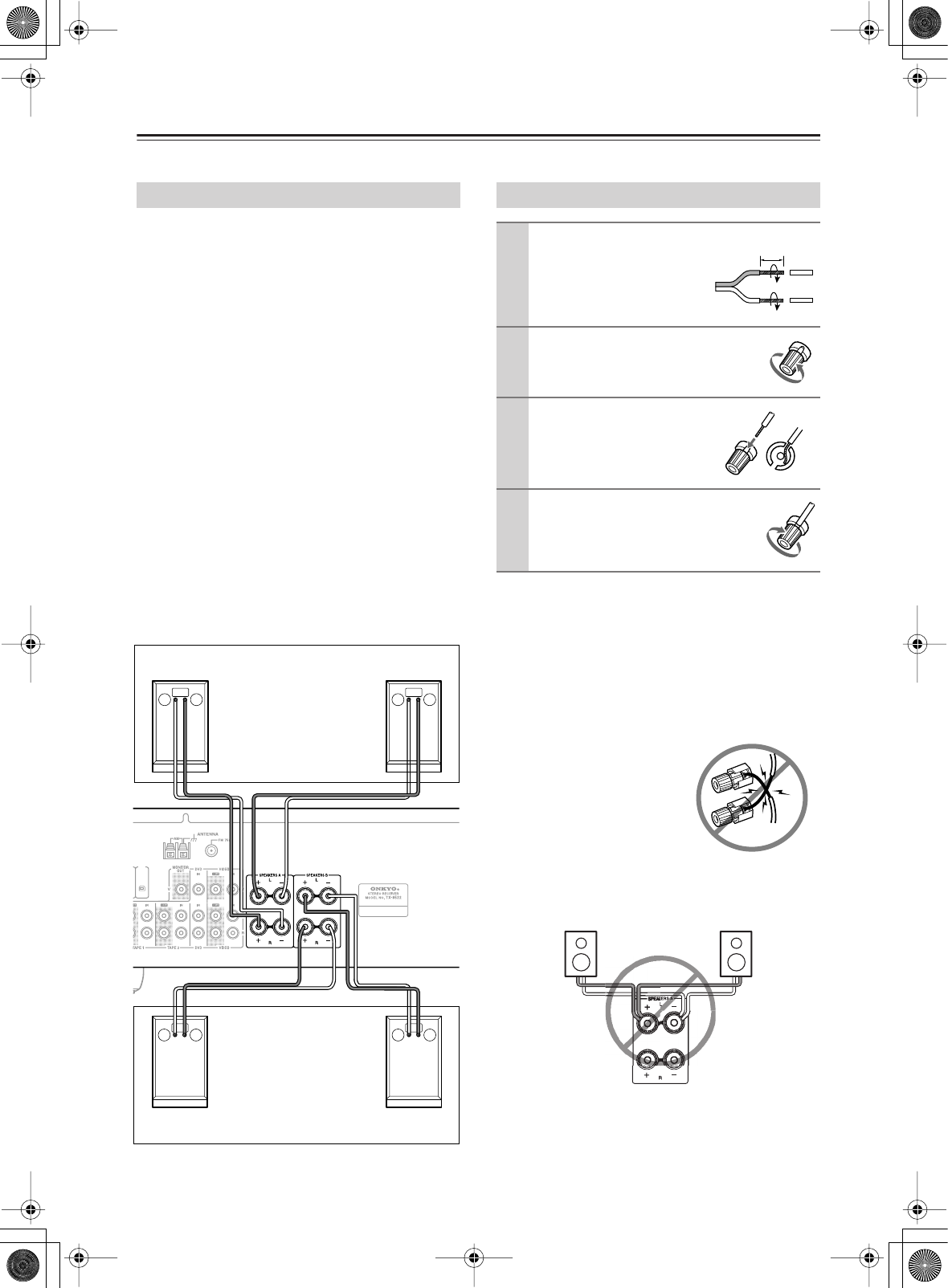
12
Connecting Your Speakers
Disconnect the power cord from the wall outlet before making any connections.
The receiver allows you to connect two sets of speakers.
When two sets of speakers are connected, you can select
which speaker set outputs sound or use both sets to
output sound simultaneously.
• When you connect one set of speakers to either
SPEAKERS A or SPEAKERS B terminal posts, or
when you connect two sets of speakers to both speaker
terminal posts and output sound only from either
speaker set, use speakers whose impedance is between
4 and 16 ohms. For the North American model
TX-8522, when the speaker impedance is 4 or 6 ohms,
set the speaker impedance setting on the receiver to 6
ohms (see next page for details).
• When you connect speakers to both SPEAKER A and
SPEAKER B terminal posts and output sound from
both speaker sets simultaneously, use speakers whose
impedance is between 8 and 16 ohms.
Note:
If you make an incorrect setting for the speakers or the
impedance values, the built-in protection circuit may be
activated resulting in no sound output from speakers.
The following illustration shows which speaker should
be connected to each pair of terminals.
• Read the instructions supplied with your speakers.
• Pay close attention to speaker wiring polarity. In other
words, connect positive (+) terminals only to positive
(+) terminals, and negative (–) terminals only to
negative (–) terminals. If you get them the wrong way
around, the sound will be out of phase and will sound
unnatural.
• Unnecessarily long or very thin speaker cables may
affect the sound quality and should be avoided.
• Be careful not to short the
positive and negative wires.
Doing so may damage the
receiver.
• Don’t connect more than one
cable to each speaker
terminal. Doing so may
damage the receiver.
• Don’t connect a speaker to more than one pair of
speaker terminals.
Speaker Connection Precautions
+–
+– +–
+–
Speaker set A
Left
speaker
Right
speaker
Speaker set B
Left
speaker
Right
speaker
Receiver
Connecting the Speaker Cables
1
Strip about 15 mm (5/8
inch) of insulation from
the ends of the speaker
cables, and twist the bare
wires tightly, as shown.
2
Unscrew the terminal.
3
Fully insert the bare
wires.
4
Screw the terminal tight.
15 mm
(5/8")


















